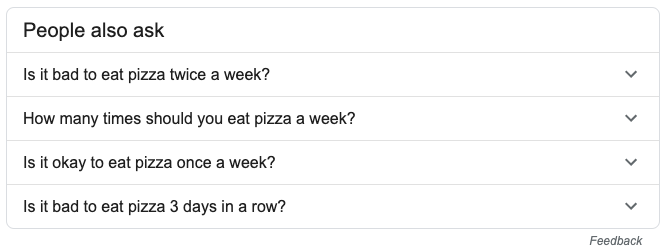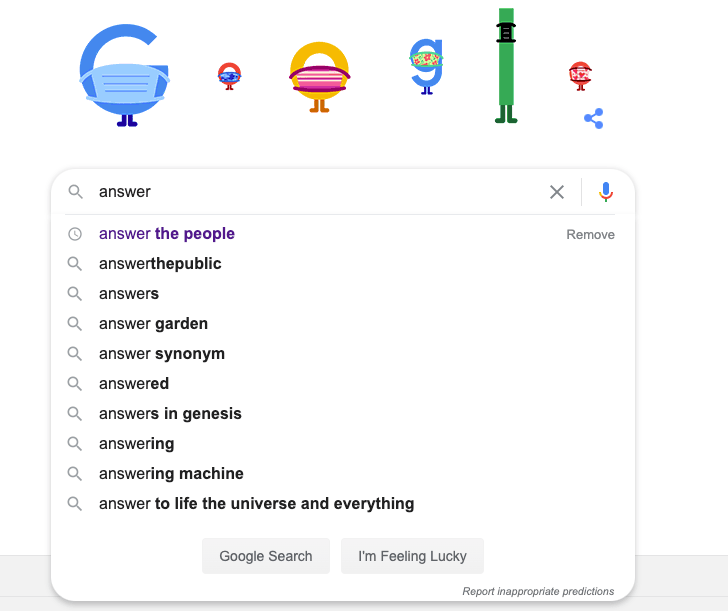Most Digital Marketers will embark on the mission of writing a keyword strategy when they’re about to launch a campaign. But there might be a number of other uncharted reasons that you urgently need one.

For search engine marketing (SEM) and search engine optimisation (SEO) having a robust keyword strategy is mission critical. It helps your business and website be found for what you stand for, a way to give focus for your content and to attract audiences when they’re looking for answers. When you don’t know what keywords your business is ranking for it’s like embarking on a space mission without a destination. You might have the rocket fully fuelled, the pilots sitting in the cockpit and the countdown timer ready for launch, but what trajectory are you aiming for? What’s the final destination? To continue with this analogy a business without a keyword strategy is like a rocket heading into a black hole. At some stage you’re going to run out of fuel and that’s likely to be a grizzly end for your astronauts and all that hard work.
From your lounge or dining room table
There’s some basic principles you can easily adapt and I’d recommend doing some preliminary to help power boost your keyword strategy. Most of it can be done from the comfort of your own lounge or dining room, just by using a few free online tools. One of my favourite places to start is by doing a Google Keyword audit of the website. In my case the traffic volumes are not particularly high as I haven’t invested in any paid marketing campaigns, but what it does tell me is what people are finding me for.
Photo by Vlada Karpovich from Pexels
Google Keyword Audit
Google’s Keyword Planner is a free tool you can use, just by creating a Google Adwords account. If you’re not sure where to start it’s a fairly intuitive registration process that will have you up and exploring in no time. You can register here
Competitor Keyword Audit
The other thing I’m a massive fan of is doing a competitive keyword audit. This is where you look at 2 -3 websites of businesses you consider to be similar and perhaps and alternative to yours to explore what they’re ranking and being found for. This can be insightful as much as it is an opportunity to explore previously unchartered skies. Something I realised when doing a keyword audit of one of my key competitors is just how focussed they were on a particular market, China. This is great news, because as an independent consultant with strong experience in other Asian countries this gives me a blue sky competitive space to take dominant ownership of.
The Guru of Keywords
One of my favourite tools for conducting competitor keyword audits is another free tool, UberSuggest. This powerhouse created by Digital Marketing guru Neil Patel is definitely worth checking out! He’s a New York Times Best Selling Author and the Wall Street Journal refers to him as one of the top influencers on the web. He’s also founded a number of Digital Marketing companies such as Crazy Egg, Kissmetrics and Neil Patel Digital, which is both a source of tools, education and a Digital Marketing agency.
What is your audience searching for?
Ok, so we’ve looked at what people are finding us for by doing a keyword audit. We’ve also picked out a few competitors and used that to get some more ideas. Now we should turn to our ideal customers. What are the questions they’re seeking to answer by their analysing their search behaviour? This is going to take some proactive research, not just doing some desktop research. You could start your audience keyword audit by talking to your frontline teams, those who spend the most time with your customers. What are the questions they get asked? What are people struggling with? Could you help them by creating an FAQ page? If you’re looking for more insights on what customers want, have a read of my article on Business Recovery Tools which includes how to create a Customer Value Proposition using Customer Empathy Maps and Customer Personas.
When looking at this there are three types of questions people are trying to answer when conducting a web search. These fall into Informational, Location based and Transactional searches. Think of your own behaviour when last doing a search. Were you looking for a piece of information? For example, how many times a week is it ok to eat Pizza? That would classify as informational. Another search could be best Pizza shop near me. This would be location based, and chances are your search engine is going to be looking at your device and IP address to figure out where you are. The last type of search might be best value pizza for cooking at home. This would be considered transacional, and results are mostly likely to include some prices.
Another way I like to find keywords or long-tail search phrases is by entering a few words into Google and seeing what search terms come up. This can be a powerful way to discover more phrases that your audience are looking for as it’s based on previous search behaviour. Give it a go, you’ll see a pop-up emerge something like this:
There’s another free tool I really like called Answer the public. If you can get past the creepy guy looking at you while you enter your search question then this one can help you understand a really broad variety of long-tail searches. I particularly like this one for creating blog articles and looking for content ideas. The tool takes your keyword(s) and uses it to form a variety of sentences that people might ask with the structure of How, Why, What, Where, When.
What do I do with my Keywords?
Now that you’ve done the hard work of research, now it’s time to put your keywords into action. Create a list of articles you might want to use them in, put them into your content headings and URLs. Make sure you edit your blog snippets and have them prominently included in the explanatory paragraph. Getting into this practice will help increase your SEO without too much effort. While we’re on the subject of best practice it’s also good to have them a headings in your article and to have them appear in the first paragraph of your pages. This will help you get picked up by the search bot’s that check the URL, Snippet, Headings and content of the article
Is Keyword Stuffing still a thing?
Yeah it is, particularly when writing copy for your Search ads. I’m not particularly good at this but when Google forces you to stick to a word count you’ll find that being concise makes it easier for people to read. Stick to your key proof points and call-outs. Remember the whole point of your Google Ad is to get someone to click on your link versus someone else’s.
So in summary, do your homework, it’s not that hard when there’s so many free tools out there. Start with your keyword strategy, think about how your audience are asking questions and you won’t be lost become a falling star in a cosmos of websites.
A keyword strategy is based on keyword research and is used to identify what terms you want to be known for. It could be about the content you’re planning to write or how as a measurement tool for tracking the results in Google Analytics. A Keyword strategy is about how you want to target those keywords, now and in the future.


